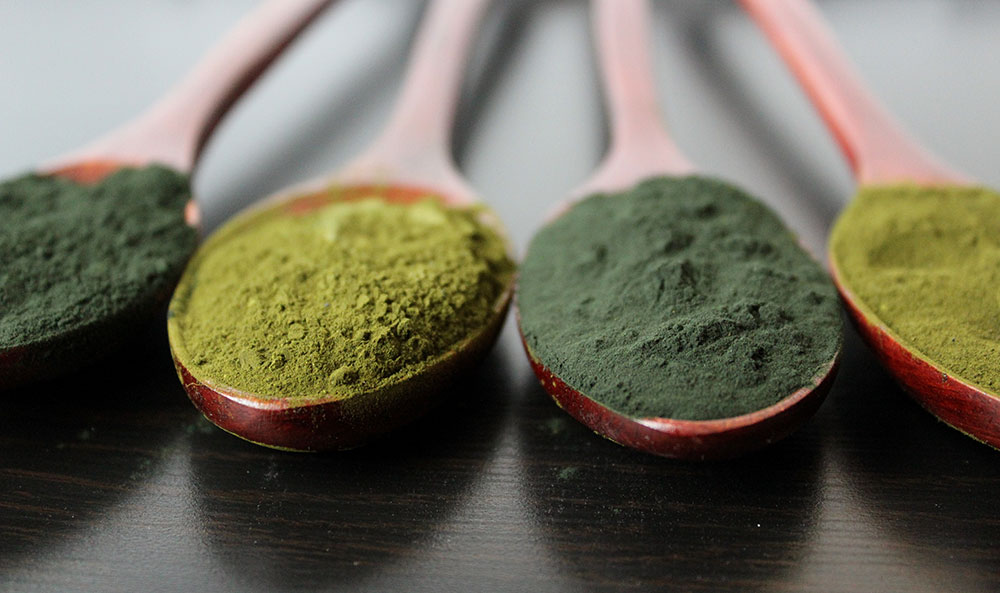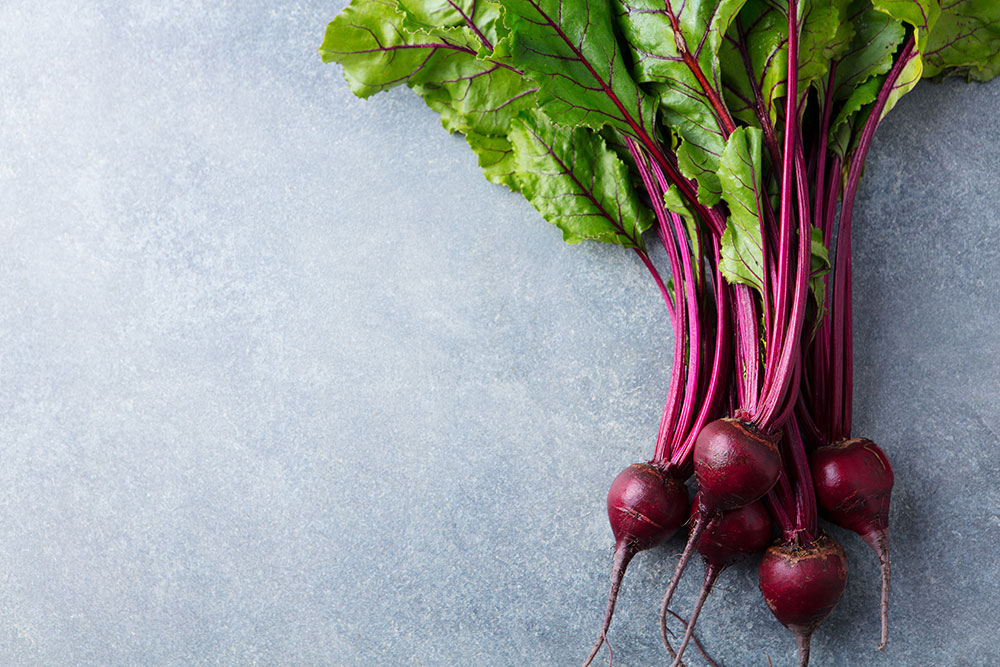Plant protein
Move over tofu and soymilk! Vegetarian foods have long been on specialty shelves but now more conventional foods are incorporating plant proteins, in all things from egg substitute and yogurt, to bratwurst and sausage. Ingredients like seitan, tempeh, lentils, pea protein, rice protein, mung bean, fava bean, and vegan protein powders are making their way into mainstream foods. It is no secret that replacing animal protein with plant protein can improve blood sugar control in diabetes1, lower cardiovascular disease risk2, and reduce the risk of various cancers3,4. Plus, vegetarian and plant-based diets are associated with lower body weight5.

Air fryers
As an alternative to conventional frying in oil, these countertop convection (fan-powered circulated hot air) ovens can produce a similar crispy texture, color and flavor with substantially lower fat content6. French fries and chicken nuggets that are deep fried do rate higher in crispness, mouth feel and acceptance, though6,7. Air-fryer outcome is good if instructions are followed properly for lightly breaded foods cooked in small batches, but the process is slower than deep frying6. If you’re really craving a fried food taste, you can still lightly brush food with oil before cooking. If you need to crisp wet battered items or prepare party-size quantities, an air-fryer won’t do the job.

Root-to-stem cooking
This no waste, whole food approach is not new, but restaurants and chefs are offering more culinary guidance to consuming fully edible plant parts. By utilizing all the parts of your produce – the leaves, stems, rinds, stalks, and skins – you get a boost of nutrition and flavor. Plus, it’s cost-effective and environmentally conscious. Here are some tips to embrace more of your produce:
- Wash or scrub potatoes, carrots, cucumber, and apple thoroughly instead of peeling.
- Revive wilted vegetables by cutting near the base and submerging in cool water for 20 minutes.
- Blanch the leafy tops of carrots, radish, turnip and beets to use in salads.
- Chard stems can be diced and sautéed to give crunch to cooked leaves.
- Blenderize the cut ends of cooked string beans and add to a green smoothie.
- Broccoli stalks can be shredded for slaw.
- Pickle watermelon rinds for a creative chutney or summer side dish.
- Cabbage and cauliflower cores can be chopped and saved for soups.
- If you must peel bruises or remove brown spots, use these trimmings in a compost bin.

Edible essential oils
!! Recommended to avoid
Unlike flavor extracts, essential oils are not intended for ingestion. Though the FDA indicates they are generally recognized as safe in commonly used amounts (approx. doses in the range of 1 to 3 drops, 1 to 3 times per day), you should only use food grade essential oils orally with the expertise of a professional. They are highly concentrated and can cause damage internally if administered without expert dilution, even those based on culinary ingredients (cinnamon, ginger, oregano, wintergreen). The International Federation of Aromatherapists doesn’t recommend the ingestion of essential oils. The Alliance of International Aromatherapists (AIA) also doesn’t endorse oral therapeutic use of essential oils “unless recommended by a healthcare practitioner trained at an appropriate clinical level.8”

This article should not replace any exercise program or restrictions, any dietary supplements or restrictions, or any other medical recommendations from your primary care physician. Before starting any exercise program or diet, make sure it is approved by your doctor.
Sources:
- Effect of Replacing Animal Protein with Plant Protein on Glycemic Control in Diabetes: A Systematic Review and Meta-Analysis of Randomized Controlled Trials. Viguiliouk E, Stewart SE, Jayalath VH, et al. Nutrients 7(12): 9804-9824. doi:10.3390/nu7125509.
- Plant protein and animal proteins: do they differentially affect cardiovascular disease risk? Richter CK, Skulas-Ray AC, Champagne CM, Kris-Etherton PM. Advances in Nutrition Nov 13; 6(6): 712-28. doi: 10.3945/an.115.009654.
- Recommendations for Cancer Prevention: Eat more of a variety of vegetables, fruits, whole grains and legumes such as beans. “Basing our diets on plant foods… can reduce our risk of cancer.” American Institute for Cancer Research www.aicr.org
- Guidelines on Nutrition and Physical Activity for Cancer Prevention Feb. 2017 “Eat a healthy diet, with a focus on plant sources.” American Cancer Society www.cancer.org
- A plant-based diet for overweight and obesity prevention and treatment. Turner-McGrievy G, Mandes T, Crimarco A. Journal of Geriatric Cardiology May; 14(5): 369-374. doi: 10.11909/j.issn.1671-5411.2017.05.002.
- A Comparative Study of the Characteristics of French Fries Produced by Deep Fat Frying and Air Frying. Teruel MdR, et al. Journal of Food Science Vol 80 (2): E349–E358. doi:10.1111/1750-3841.12753
- Effect of Preparation Methods on Total Fat Content, Moisture Content, and Sensory Characteristics of Breaded Chicken Nuggets and Beef Steak Fingers. Yoon HR, et al. Family and Consumer Sciences Research Journal Vol 28 (1): 18–27. doi:10.1177/1077727X99281002
- Aromatherapy Safety. “Internal Use Statement” Alliance of International Aromatherapists https://aia.memberclicks.net/aromatherapy-safety
Recommended Reading
LA Fitness 4th of July and Canada Hours 2022
LA Fitness will be open for Independence Day and Canada Day! Modified clubs hours are below!Holiday Hours (U.S.) Monday, July 4th: 8AM - 4PM Tuesday, July 5th: Normal Hours Holiday Hours (Canada) Friday, July 1st: 8AM - 4PM Saturday, July 2nd: Normal Hours ...
LA Fitness Holiday Hours 2021
LA Fitness will be open for parts of the Holiday Season! Modified clubs hours are below!Holiday Hours (U.S.) Friday, December 24th: 8AM - Noon Saturday, December 25th: Closed Friday, December 31st: 8AM - 6PM Saturday, January 1st: 8AM - 6PM Holiday Hours...
3 Year Anniversary – Living Healthy Podcast Update
Today is the 3rd Anniversary of the Living Healthy Podcast, presented by LA Fitness. Hi everyone! I just wanted to give you a quick update on what is going on with the show. We are trying to plan out 3 LIVE podcast episodes covering Exercise, Nutrition, and Sleep...


